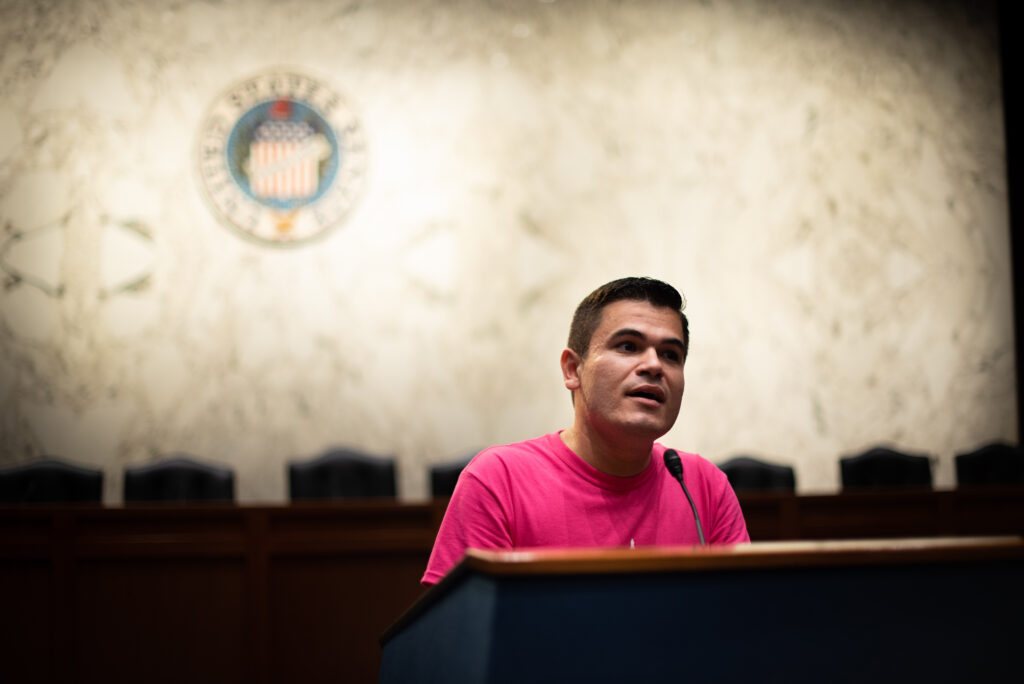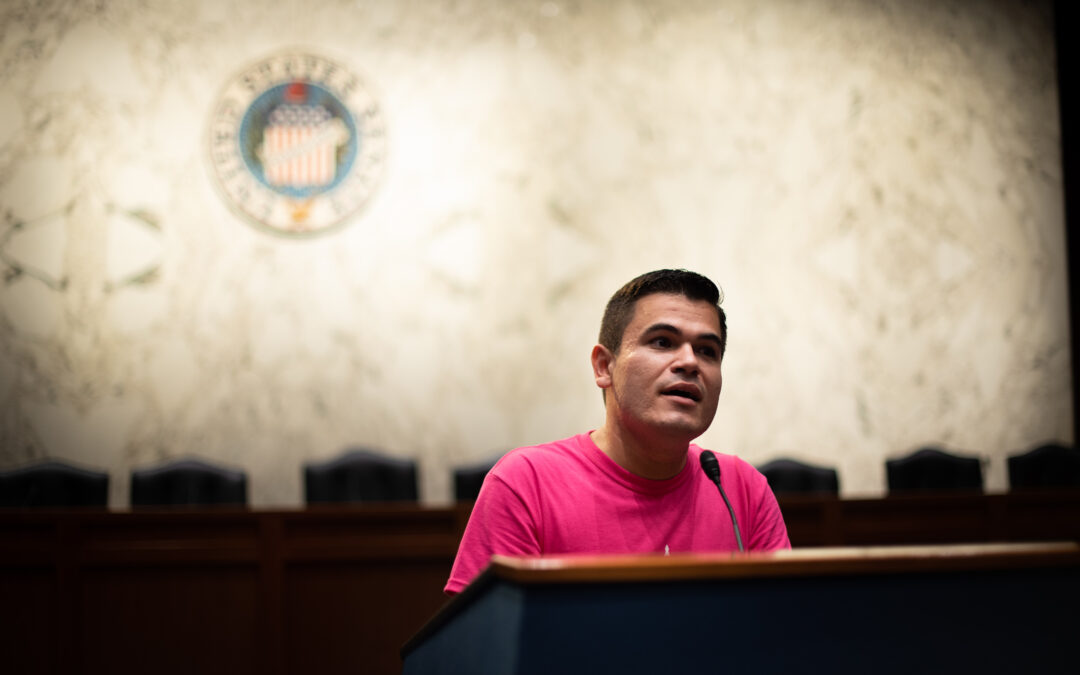
Exactly seven years ago, I co-founded Pay Our Interns (POI). Founded is a generous term; it was a campaign on Facebook run by two college dropouts, Guillermo and me.
We had no money, jobs, or degrees to fall back on. We did have grit, an arc towards justice, and a vision—a vision where someone’s socioeconomic status did not determine what kind of career they could pursue. Those three things kept me going through the years, and as a result, the organization helped change how those in our nation’s capital view labor and pay.
If someone wants a career in foreign policy, they can now apply for an internship at the U.S. Department of State, where they will get paid and get housing and travel costs covered if they’re in an assignment abroad.
If someone wants to work in the Executive Branch, they can apply for the White House internship program and get paid $18 an hour while working a few feet away from the President.
Neither of these institutions paid interns two years ago. It directly resulted from the advocacy efforts POI started and led alongside our Congressional partners. Many of our legislative wins almost never happened and would have been killed behind closed doors, but Pay Our Interns was behind the scenes, pushing, pulling, and ensuring our policy goals reached the finish line. That’s the value add of POI: we make sure new intern funds become a reality, and then we serve as watchdogs, ensuring the money benefits those who have historically been locked out of these opportunities and not just kids of the wealthy.
I am beyond proud to know that the organization I started has helped thousands of young people (and also older people, including veterans who often are transitioning careers, because not everyone who interns is an 18-year-old) enter public service who otherwise would not have if they couldn’t get paid.
It’s because of these accomplishments that makes it easier for me to make the difficult decision to step down at the end of the month. I’m a firm believer in the seasons of life. For the past 7+ years, I’ve been in fight-and-advocate mode. While great things have come out of that, it often comes at a personal cost.
At the start of the pandemic, many working-class students faced two crises: when their schools closed, they lost their housing; when the economy abruptly stopped, they lost their jobs—all while dealing with the spread of COVID-19. Despite not being a direct service provider, POI received over 150 messages from distraught students asking if we knew of any resources to help fund various expenses, including rent and flights back home.
On top of that, as COVID swept across the country, Congress moved to go virtual. That decision led to virtually every office letting go of their interns because, under current rules, interns could not receive a laptop and do remote work. On top of that, funding dried up, and the org needed more cash.
I ignored that for a second and focused on helping as many students as possible. We launched a campaign called #SaveInternships that focused on pushing employers to go remote instead of cutting internships and creating a mutual aid fund. First, we teamed up with Rep. Chrissy Houlahan (D-PA) and former Rep. Rodney Davis (R-IL) and collected nearly a hundred signatures in the period of a week for a bipartisan “Dear Colleague Letter” asking the House Administration to modify the rules to allow interns to work remotely. It worked, and in the process, we saved hundreds of internship positions and, more importantly, ensured that COVID did not derail the careers of young people just starting out.
Additionally, we launched the Intern Relief Fund, which provided emergency assistance to students whose internships were canceled. Grants ranged from $150-$1,500 and allowed students to pay their rent, utilities (internet for virtual internships), food, tuition and fees, medical expenses, and transportation. Ultimately, we disbursed $250,000 in aid to 1,500 recipients. Over 70% of the funds went to applicants of color, including those who were undocumented, a vulnerable group that is not eligible for government assistance.
POI also released a report titled “Who Congress Pays: Analysis of Lawmakers’ Use of Intern Allowances in the 116th Congress,” where we did a deep dive and analyzed 8,500 pages of payroll data and investigated the social backgrounds of 3,822 interns. We examined their racial and gender backgrounds and the universities they attended. One of the key highlights from the report included calling on Congress to create a new fund for committee interns, many of whom were in graduate school and going up to a year without getting paid. We released the report in March 2021; I testified in front of the Modernization Committee in April regarding the report. By June, the House Legislative Branch Appropriations Committee had included new funds to pay committee interns. That is Pay Our Interns in action, and it all happened at the height of COVID––and we accomplished all of this in a year.
While my time as Executive Director of Pay Our Interns is ending, the organization’s work is far from over. While the White House may pay their interns now, approximately 50% of all interns nationwide go to work without getting paid. 70% of unpaid interns are women. Black and Latino students are the least likely to have a paid internship while in school. The internship economy mirrors the inequities in our society, and unpaid internships will continue to exist as long as someone benefits from free labor. What is most jarring is the Supreme Court’s decision to ban race-based affirmative action very well threatens the few programs out there that help students of color obtain work-based learning opportunities.
I won’t mince my words; things are not looking good in society. But it’s in these moments of crises where systemic change is possible. Normalization is the enemy of progress, and the intern movement has come too far to go back to the way things were. The work of Pay Our Interns is needed now more than ever.
Best Regards,
Carlos
P.S. None of this would have been possible without the countless staffers and even interns who advocated quietly and sometimes loudly on this issue in their workplace. You all are the true heroes.

